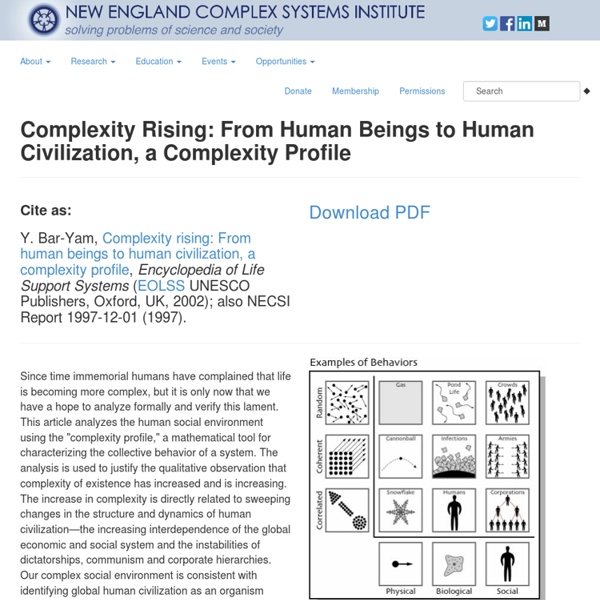Complexity Rising: From Human Beings to Human Civilization, a Complexity Profile

Customized Blended Learning: The Classrooms of the Future?
Online colleges may offer lessons that are personalized—to a degree. But not to the degree found at Summit High, a California charter school. The school has launched a test program that lets students personalize their own learning to an unprecedented degree. In a ninth-grade math class, some students work on geometry exercises, while others take tests in algebra, probability, and long division. Students work online, in large-group, teacher-led instruction, and in small groups. Kids get to choose the type of instruction they want—and the teacher can monitor everyone’s progress on a laptop as he moves around the room, stopping to offer individual help when needed. Even today’s typical online learning programs aren’t this personalized. Approximately 36 schools throughout the nation are trying out a combination of instructor-led and software-led instruction. But there are also plenty of reasons why highly personalized learning has big potential. The future of education is hard to gauge.
How To Define Learning Objectives
In education, there are goals – often of the large scale and nebulous variety: “Learn English.” “Understand fractions”. “Learn to write (well)”. Achieving this type of goal is often difficult. The handy graphic below by Mia MacMeekin takes a look at “Making Stops On The Journey”, and how defining learning outcomes gives students a destination to reach for, and an expectation to achieve. Reveal the ‘destination’ (aka the learning outcome)Prepare several objectives for the students to learn based on different learning stylesPrepare for a landing on the first objectiveCreate real life objectivesCreate objectives that teach the leaders of tomorrowMotivate your students during each learning objective
Related:
Related:



